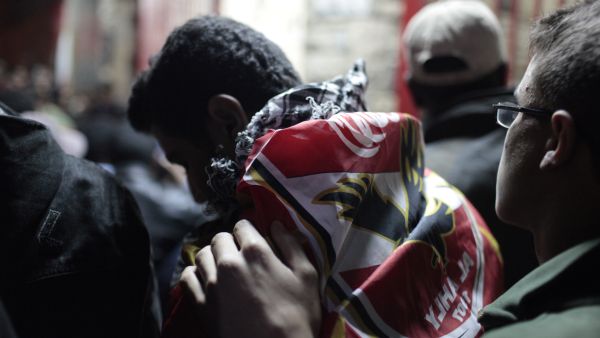A popular ultra-conservative Salafist sheikh in Egypt has said that the victims at a match in Port Said last week were not “martyrs” and had died in sin because football is forbidden in Islam.
Spokesman of the Salafi Preaching Movement in the country, Sheikh Abdul Moneim al-Shahat, who lost an attempt to enter parliament, said in a speech on Monday that those who were killed in Port Said stadium, did not sacrifice their lives for God.
“They were not in a war fighting for God, they were just having fun. This fun distracts Muslims from worshipping God,” he said in the sermon he gave at a mosque in the Mediterranean city of Alexandria.
Shahat added that the “fun” which victims sought when they went to the stadium is “forbidden in Islam.”
The comments have sparked somewhat sarcastic remarks from activists on the ground in Cairo over the past few days, as clashes that had erupted following the violence, which saw security forces fail to intervene to stop the bloodshed in Port Said, calm.
“If this wasn’t such a sad moment, I think we could all laugh at the man’s statements,” said 16-year-old Ultra fan Mahmoud, who told Bikyamasr.com on Tuesday as a truce between protesters and police seemed to be holding, that “I had friends die in the attack. I am from Port Said, and this guy is crazy. I wish he would be quiet.”
But Shahat continued to reveal the only three sports permissible in Islam.
“Only three sports are allowed in Islam: shooting, swimming, and horseback riding. Other sports are forbidden,” he added.
Shahat continued to say that football is a sport imported from the West and criticized football players who join foreign clubs.
“Unfortunately, like in the West, football players play in foreign clubs and get very high salaries while many scholars are struggling to make ends meet.”
Money spent on football, Shahat argued, should go instead to Qur’an recitation competitions.
Shahat has not shied away from controversy in recent months. Last year, he spoke out about the idea of covering statues in the country, describing them as “idols.” He also called the writings of late Egyptian Nobel Laureate for Literature Naguib Mahfouz “prostitution literature.”
By Joseph Mayton








